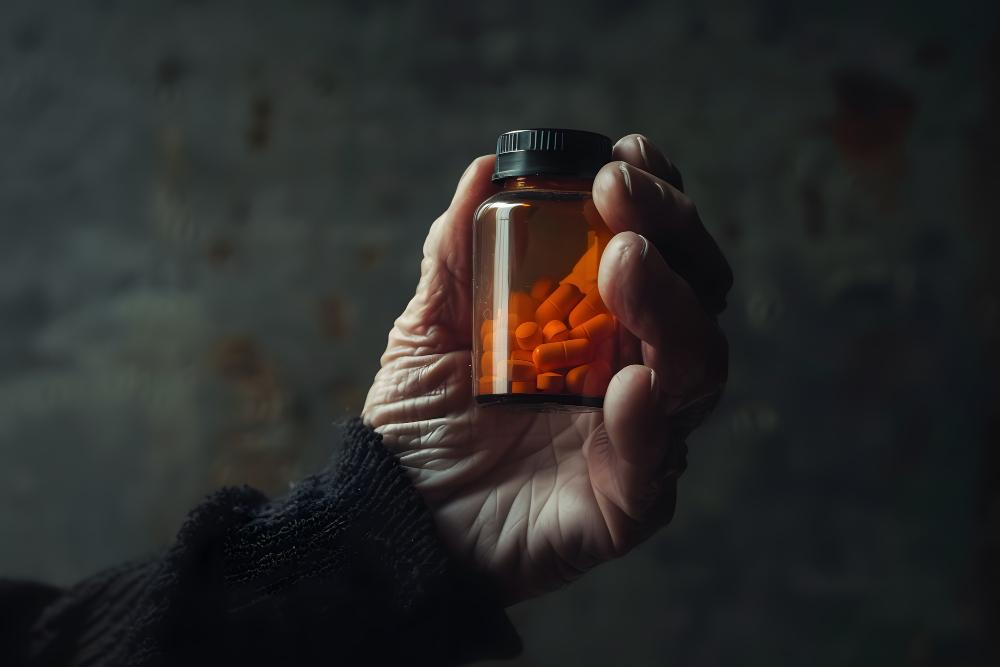Breakthrough Therapies: 7 Major Depressive Disorder Drugs Reshaping Treatment Options

Depression treatment is poised for significant advancement with several promising therapies in clinical development. For millions suffering from Major Depressive Disorder (MDD), these new drugs for depression could offer hope where conventional treatments have fallen short. This article examines seven innovative treatments that may soon transform the therapeutic landscape.
The Challenge of Treatment Resistance
Despite numerous antidepressants for major depressive disorder currently available, approximately 30-40% of patients experience inadequate symptom relief. This persistent treatment gap has accelerated research into novel mechanisms that target depression through entirely different pathways than traditional medications.
Fast-Acting NMDA Modulators
Unlike conventional antidepressants that typically take weeks to demonstrate efficacy, NMDA receptor modulators offer the potential for rapid symptom relief.
-
AXS-05 (Axsome Therapeutics): Combining dextromethorphan with bupropion, this oral medication modulates NMDA receptors while also affecting dopamine and norepinephrine signaling. Phase III trials have demonstrated significant improvement in depression symptoms within days rather than weeks, with durable effects over time.
Neuroplasticity-Enhancing Therapeutics
The ability to form new neural connections—neuroplasticity—is often compromised in depression, leading to exciting developments in compounds that specifically target this deficit.
-
NV-5138 (Navitor Pharmaceuticals): This small molecule directly activates mTORC1 signaling pathways crucial for synapse formation and neuroplasticity. By bypassing conventional neurotransmitter systems entirely, it represents a paradigm shift in how we approach depression treatment biochemically.
-
MAP4343 (Mapreg): An innovative neurosteroid that promotes neuroplasticity through microtubule stabilization, showing particular promise in depression cases with cognitive dysfunction components.
Psychedelic-Derived Treatments
Building on groundbreaking research into psychedelic compounds, several medications for major depressive disorder are being developed that harness therapeutic benefits while minimizing hallucinogenic effects.
-
COMP360 (Compass Pathways): This proprietary psilocybin formulation, administered in controlled therapeutic settings with psychological support, has shown remarkable results in treatment-resistant depression. A single administration has demonstrated benefits lasting several months in clinical trials.
-
MM-120 (MindMed): A pharmaceutical-grade LSD derivative optimized to retain antidepressant properties with reduced psychedelic effects, potentially offering a more accessible approach to psychedelic therapy.
Targeting Inflammation in Depression
Growing evidence supports inflammation's role in many cases of depression, leading to targeted approaches for patients with elevated inflammatory markers.
-
XPro1595 (INmune Bio): This selective TNF inhibitor specifically neutralizes soluble TNF, a key inflammatory mediator, while preserving beneficial TNF signaling. Early trials show particular promise in patients with biomarkers indicating inflammatory depression subtypes.
Novel Neuroactive Steroid Approaches
-
Zuranolone (SAGE-217): This oral neuroactive steroid positively modulates GABA-A receptors, producing rapid antidepressant effects within days. Its mechanism differs substantially from traditional drugs for MDD, offering an alternative for patients who don't respond to conventional treatments.
The Future of Personalized Depression Treatment
These seven breakthrough therapies represent just the vanguard of a new era in depression treatment. The diversity of mechanisms reflects growing recognition that MDD isn't a single condition but a cluster of related disorders with distinct biological underpinnings.
This evolution toward precision psychiatry suggests that the future of depression treatment will increasingly involve matching specific therapeutic approaches to individual patient profiles based on biomarkers, symptom patterns, and treatment history.
As these innovative compounds progress through clinical development and regulatory review, they promise to expand the therapeutic arsenal available to clinicians and provide new options for the millions who continue to struggle with depression despite current treatments.
For patients and clinicians alike, these developments offer renewed optimism that more effective, rapid-acting, and precisely targeted treatments for major depressive disorder are on the horizon.
Latest Blog Offered By DelveInsight:
-
Rheumatoid Arthritis Market, Epidemiology and Market Forecast-2020
-
The Present Rheumatoid Arthritis Treatment Market Offers a Mix-and-Match Approach
Latest Reports:-
Endometrial Hyperplasia Market | Eosinophilic Esophagitis Market | Erythropoietic Protoporphyria Market | Exosomes Pipeline | Fallopian Tube Cancer Market | Fatty Acid Oxidation Disorders Market | Fenebrutinib Market | Fuchs Dystrophy Market | Giant Papillary Conjunctivitis Market | Glaucoma Drainage Devices Market | Higher-risk Chronic Myelomonocytic Leukemia Market | Hormone Sensitive Advanced Prostate Cancer Market | Hypercoagulability Market | Hypoparathyroidism Market | Hypophosphatasia Market | Hypoxic Ischemic Encephalopathy Market | Igg4 – Related Disease Market | Intracranial Hemorrhage Market | Italy Healthcare Outlook Report | Lambert Eaton Myasthenic Syndrome Market | Larynx Cancer Market | Leigh Syndrome Market | Lhon Market | Marburg Virus Disease Market | Marginal Zone Lymphoma Market | Metastatic Merkel Cell Carcinoma Market | Moderate And Severe Chronic Kidney Disease Market | Morquio Syndrome Market | Mucinoses Market | Mucopolysaccharidosis Type I Market | Mucosa-associated Lymphoid Tissue Malt Lymphoma – Market Insight | Mydriasis Market | Neuroleptic Malignant Syndrome Market
- Local News
- World News
- Crime
- Politik
- Film
- FootBall
- Food
- Oyunlar
- Health
- Home
- Literature
- Music
- Networking
- Other
- Religion
- Shopping
- Sports
- Opinion
- Tech
- Scam
- Bussines News
- Credit
- Hosting
- Insurance
- Infomation
- Finance
- Entertaiment
- EĞİTİM BİLGİLERİ
- Artist
- Trick and hack
- Forex
- önizleme
- Vps Forex
- Cerita
- agriculture
- assistance


